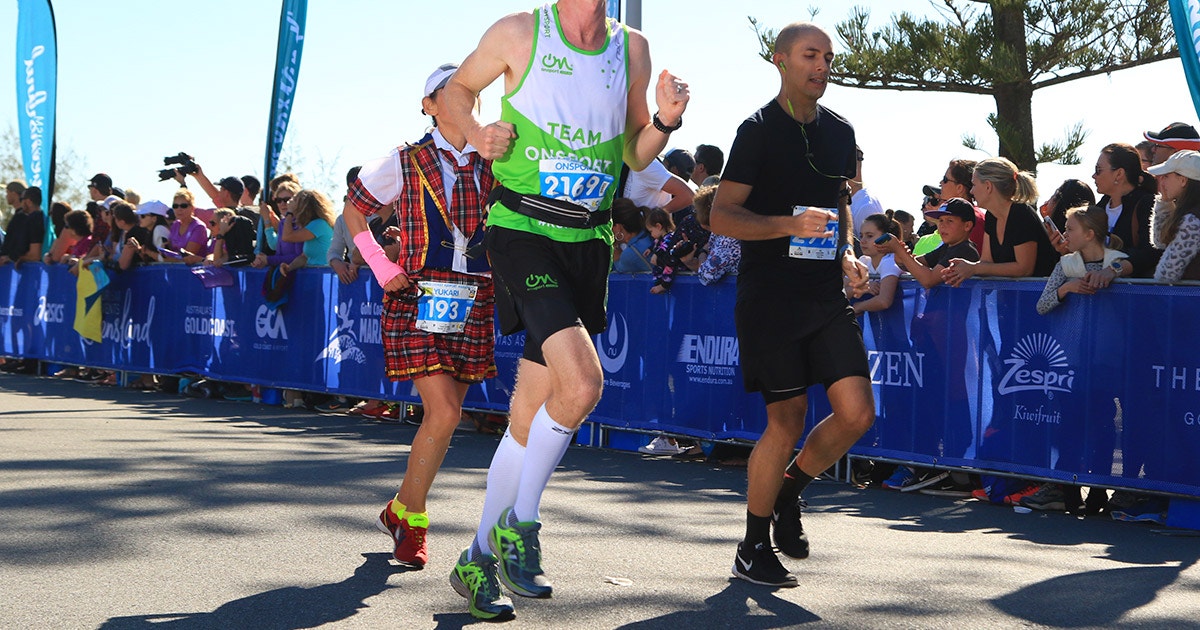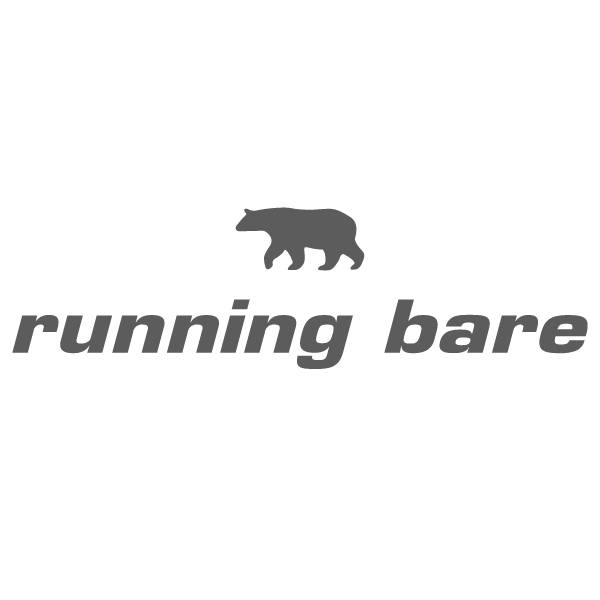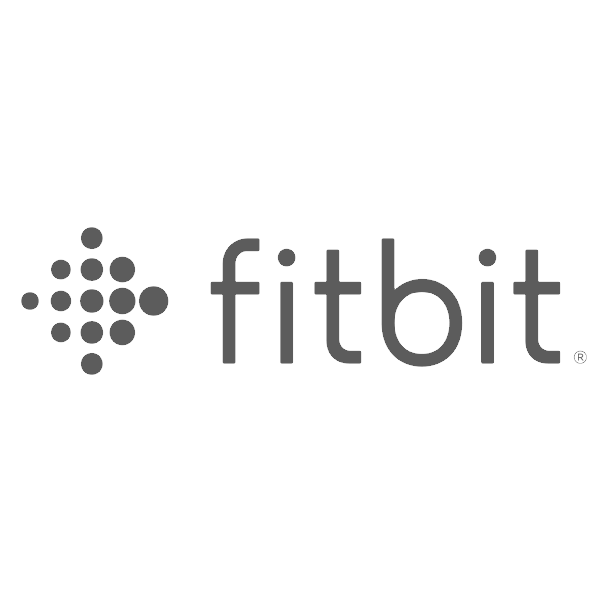Key Lessons From Running My First Two Marathons

Over the past few years, I've run a number of half marathons, as well as shorter distance races such as 10k and the City2Surf a few times, however, training for and running my first two marathons was by far the biggest challenge and learning experience in my short foray into amateur distance running.
My first two marathons couldn't have been more different and I learned a great deal from both, despite their differences.
The first marathon was at the Gold Coast in July 2017, where I went out at the start far too quickly and paid the price for that common first marathon mistake at the 30km mark. The second marathon was the Melbourne marathon in October 2017, a marathon I started, due to illness the weeks leading up to the marathon, much more conservatively. Unlike my first marathon experience, in my second I succeeded in running a steady pace throughout the race, avoiding hitting the wall altogether.
Here are the 5 key lessons I learned from training for and running my first two marathons:
1. You can run just as fast overall by pacing yourself at the start of the race
2. Consistency and higher weekly volume in training is one of the most important things
3. Taking more time to properly consume electrolyte can actually save you time
4. Consuming more energy gels can assist in avoiding the wall
5. The more marathons you train for, the easier it tends to gets
1. YOU CAN RUN JUST AS FAST OVERALL BY PACING YOURSELF
Earlier this year I ran the Gold Coast marathon and really enjoyed the experience of training for and running my first marathon. It was an expedition into the unknown and involved stepping outside of my comfort zone during both training and racing and this was quite challenging but at the same time extremely rewarding.
I've been a night owl most of my life - staying up late to study at school and university, working into the night at an investment bank and generally feeling like I get my best work done at night. Unfortunately night owls tend not to do well getting up early in the morning to train for a marathon, especially if we've had a late night and it's winter...
In my first ever marathon, I had this lofty, extremely ambitious goal of running a sub-3 marathon. I had trained a fairly solidly and motivation was high, however, I was lacking consistency, especially with getting long runs in. So the Australian national anthem was sung and the starters gun went off and there I was trotting down to the start line. I ran hard out of the gate (4:00-4:20/km pace) and felt great until about the 20-25km mark. I then tried to hold on at the pace I was going (unsuccessfully), smashing into the wall hard at around the 30km mark and spending the next 12km cursing and swearing as I ran/walked to get my crampy, broken body to the finish line, running a 3:34. At the time hitting the wall was a fairly ego-destroying experience. In hindsight, however, hitting the wall in a first marathon attempt is quite a character building experience that I've been able to reflect on and take a number of lessons from, so I've since made peace with the wall, even if I secretly hope I never see Mr Wall again.
In mid-October I ran my second marathon, the Melbourne Marathon and my finish time was within just 4 minutes of my previous Gold Coast time. In contrast to my first marathon run, during this second attempt, I decided to pace myself very conservatively from the start of the race onwards and it wasn't until 10-15km mark that I started to pick up the pace to around my lactate threshold pace. I took a much more conservative approach as I had a short training program after recovering from the Gold Coast marathon and during that 12 week program I got sick twice and was out of action for 4 weeks of the 12 week program. Despite this challenge faced in training and a slightly hilly finish in the gardens around the MCG, I was able to finish the Melbourne marathon without 'bonking' (hitting the wall) and therefore not having to walk because my legs refused to run!
Having experienced both styles of marathon, I highly recommend the more steady paced start that allows you to warm up during the start of the marathon and not burn up essential glycogen stores needed for later in the race. Listening to your body in the opening stanza of the race then allows you to 'feel' when you can push harder and how much harder you can push for the middle and end of the race. You can also use a heart rate monitor watch during the race to look at your pace and heart rate and determine whether you're fine to increase the pace. With much more consistent training in the future, I can see how I could take my slightly slower but more consistent Melbourne marathon run and dial it up to a quicker but equally consistent run without hitting the wall.
Bottom line: start your first few marathons slower than you expect and slower than your target pace and then speed up if you can later in the race.
2. CONSISTENCY AND HIGHER WEEKLY VOLUME IN TRAINING IS KEY
It sounds so darn obvious that it might not be worth mentioning here, but it's so important that I would like to underscore it. If you train consistently, incorporating a mix of speed and distance work, especially the latter, unless there is an unforeseen issue such as injury or illness, you will very likely run stronger, quicker marathons. Training consistently for 12-16 weeks has been a struggle for me personally as in training for two marathons I've fallen sick three times - the first time for two weeks before the very start of the Gold Coast marathon, the second and third times during my training for the Melbourne marathon - each time resulted in two weeks off running and the last time nearly prevented me from participating in the Melbourne marathon.
It's frustrating to put in all the hard work associated with the training effort to then fall ill and have some of the hard earned training gains erode, however, it's a reality of life that you may not remain in perfect health throughout your training program. Pushing your body hard can weaken your immune system and when you consider training is mostly across the colder months of the year (autumn, winter) you are more susceptible to picking up a cold or flu that will disrupt your training. Many runners fall ill during the taper phase of training in the lead up to the race as your body. But if you're going to smash out a marathon, you have to learn to roll with the punches and listen to when your body is telling you to push and when it is telling you to rest up and recover.
Again, extremely obvious to the seasoned marathon running, but not so obvious to a first time or inexperienced marathoner, I've found following a training program critical to my success. Why? A program gives you a structure to continue to consult week in week out during your training to ensure you are maximising your training effort. A good training program will vary your week to week focus, helping your body to adapt to the demands the marathon asks of you by training you slightly differently each week - be it with more speed work one week or more distance work another week. They are also typically structured to allow you to increase your aerobic capacity and range (distance) and then build speed on top. A decent training program should push you to the point just before you are injured but allow for sufficient rest too, so that you are getting the most out of your training sessions, but not so much that you end up hobbling around for days after.
3. TAKING MORE TIME TO PROPERLY CONSUME ELECTROLYTE CAN SAVE YOU TIME
I'm horrendously unpracticed (so bad) at consuming electrolyte at drink stations during events, be they half marathons or marathons. I get a severe case of white line fever and as soon as I cross the start line I get a rush of adrenaline that means I'm often more focussed on running fast than I am aware of the things I need to do during the race to keep running fast.
Hitting the wall during my first marathon was caused by a number of factors but the key factor was insufficient consumption of electrolyte during the early stages of the race. On a hot race day (it was 22 degrees by the time I crossed the finish line), I paid for this rookie mistake in the form of calf cramping at the 30km mark.
After this difficult first marathon experience, I was determined to address this issue by ensuring that I took more time to properly consume electrolytes at drink stations throughout the Melbourne marathon. My strategy was to run slowly into drink stations, pick up a cup and move to the end of the drink station, pulling in near the end of a table out of the way of other runners and then standing and quickly consuming the electrolyte before recommencing my race. Taking this much time sounds counter-intuitive for running a faster marathon, however, the little time it takes to consume electrolyte is nothing compared to the amount of time you will spend walking/hobbling/stretching in the second half of the race if you cramp up.
I still have a lot of practice to get to the point where I can efficiently run into a drink station, grab a cup of electrolyte and consume all of the contents whilst maintaining my marathon pace or even just being in motion! I've recently purchased a Camelbak Quick Grip Bottle that I intend on using for my next marathon as it will allow me to avoid the cup cluster of a situation and to just refill it at the end of a few drink stations along the journey. I'm sure I'll get there but if you struggle like me to consume electrolyte during events, give the rest at the end of the drink station a try or buy a smaller handheld drink bottle for marathons to take with you.
4. CONSUMING MORE CARBOHYDRATE DURING THE RACE (IN THE FORM OF ENERGY GELS) WILL ASSIST IN AVOIDING THE WALL
Another sports nutrition tip (as I'm learning, sports nutrition is fairly fundamental to a great race) consuming more carbohydrate will assist you in avoiding hitting the wall. During my first crack at the marathon distance, I had loaded up on sickly sweet tasting carbs and sports drink in the hours leading up to the race and consequently, come the start time, the thought of having more carbs/sugars made me feel sick to the stomach. As a result my first energy gel wasn't consumed until about an hour into the race and then the second 45 minutes thereafter. Contrast this with my second marathon run in Melbourne where I had fewer sickly sweet tasting carbs before the start of the race and consequently was able to stomach an energy gel 15 minutes prior to the start of the race and then one gel every half an hour throughout the race. I used my running GPS watch to keep an eye on the elapsed time so that I knew when it was time to take my next gel. Taking this revised approach, I was consuming around 52 grams of carbs per hour, which is around the recommended rate, if not on the slightly lower side.
The Australian Institute of Sport recommends carbohydrate intake of 30-60 grams per hour for athletes exercising continuously for a period from 1-2.5 hours. After 2.5 hours, the AIS recommends athletes consume up to 90 grams of carbohydrates per hour and using multiple transportable carbohydrates (a mix of glucose and fructose). A good friend of mine, Joey Sprange (he runs the Mosman Vision PT gym) is an experienced Ironman and personal trainer and based on his extensive training experience and expertise, he recommends following the rule of consuming 0.7-1 gram of carbohydrate per kilogram of body weight per hour during an endurance running event. For example, if you're 65kg like me, you'd need to consume between 45.5-65 grams of carbs per hour during your marathon. Most energy gels contain around 25g of carbs, so if you're 65kg you'll likely need to consume 2-3 energy gels per hour.
Whatever sports nutrition formula you choose to follow, I highly recommend testing a range of energy gels throughout your training to see which energy gels you like the flavour of and more importantly, which energy gels suit and settle well in your stomach. Try not to be in a position where you're testing your nutrition on race day - this could lead to a lot of discomfort and unwanted trips to the portaloo during the race...
5. THE MORE MARATHONS YOU TRAIN FOR, THE EASIER IT GETS
Marathon training takes a lot of time, a lot of effort and to really boil it down to basics, most of that effort focusses on conditioning your body for the aerobic demands you will place on it throughout the duration of the marathon. You build speed and endurance whilst mixing in shorter and medium distance recovery runs. As I've trained more and more, my muscles and muscle fibers and tendons have become stronger, my lung capacity has increased and my average heart rate when running (and my resting heart rate) has lowered.
Despite having only trained for and run two marathons, I feel like the effort to train for and prepare for a marathon is much less daunting now, as my body has become somewhat accustomed to the type of training required to complete a marathon (although I still get accumulated muscle soreness and the odd niggles from time to time, especially in the achilles and gluteal muscles!). Through this training process and listening to my body, I'm also lot more educated about my body - how it reacts to nutrition, the types of footwear I'm better suited to, how much electrolyte I need to consume, how I feel when I'm starting to over-train etc.
If you're about to embark on training for your first marathon, don't be afraid, it's a wonderful experience during which you'll learn so much about yourself both physically and emotionally!
CONCLUSION
I'm still learning how to run the marathon distance well and run it as fast as I'd like. My first two marathon experiences were completely different. I'm treating every future marathon that I train for and run as learning experiences and hopefully I can use the experience I gain and the stronger running frame I build to bring my PR time down over time.
It's my hope that if you understand some of the lessons above that you will gain something from this article that will help you to improve your marathon running, especially if you're just starting out on the fantastic journey of marathon running.
Best of luck with your first/second/xth marathon! We hope to see you out there on the road.
Happy running!
by Andrew





























































































